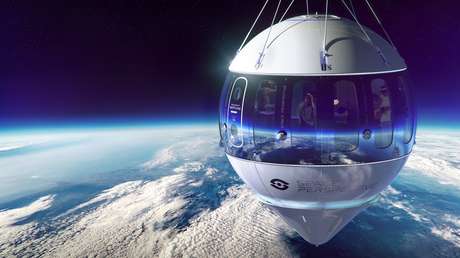Published:
22 Aug 2022 18:28 GMT
The greatest concern is related to prolonged exposure to microgravity and the incidence of radiation.
A group of scientists from the Australian National University (ANU, for its acronym in English) developed a mathematical model that will allow medical specialists to assess whether an astronaut is fit to withstand the effects he will experience in the next long-duration space flights with destination Mars, reported the academic institution.
Lex van Loon, a researcher at the ANU School of Medicine, mentioned that the greatest concern regarding trips to the red planet is related to prolonged exposure to microgravity, which, combined with the incidence of radiation , will cause “fundamental” changes in the bodies of future travelers.
“We know that it takes 6-7 months to travel to Mars and this could cause the structure of your blood vessels or the strength of your heart to change due to the weightlessness experienced as a result of zero-gravity space travel,” Van said. Loon. Likewise, he indicated that the use of mathematical models will help “predict whether someone is fit to fly to Mars”since, he assured, “there are more quotas for rich people, but not necessarily healthy, to go to space”due to the increase in the supply of “commercial space flights” by private companies such as SpaceX and Blue Origin.
Given this argument, the authors of the study, published in the journal npj Microgravity, developed a model with the ability to simulate the changes that occur in the cardiovascular system of a person after being exposed to microgravity for long periods of time, with the purpose of determining and identifying if the human body can resist Martian gravitational forces, which are not as strong as those on Earth. The model uses an algorithm based on astronaut data that has been collected on previous expeditions, including the Apollo lunar missions.
The lack of gravity causes fainting in astronauts
“The purpose of our model is to predict, with great accuracy, whether an astronaut can safely reach Mars without passing out,” said emergency medicine specialist Emma Tucker, who explained that the absence of the “gravitational pull” causes Fluids move to the upper part of the body, which will cause dehydration to occur later, since the person will continually go to the bathroom to eliminate excess fluid. In addition, he will not feel thirsty, so he will not drink any type of liquid, further aggravating the situation.
“This is why you might see astronauts on the news fainting when they set foot back on Earth”Tucker said, adding that “this is a pretty common thing as a result of space travel,” so the more likely a person is to collapse upon return the longer they’ve been in space.

Another problem that the future crew will face in carrying out their duties on the Martian surface is the delay in communications between them and Earth, which would lead to an interruption of immediate medical assistance by ground support teams. According to Von Loon, the window of silence for radio signals could last around 20 minutes, depending on the alignment of the Sun, Earth and Mars.
“If an astronaut faints when they first exit the spacecraft or if there is a medical emergency, there will be no one on Mars to help them”stressed the researcher, adding that because of this situation it is necessary to “be absolutely sure that the astronaut is in a position to fly and can adapt to the gravitational field of Mars”, so that he can “operate effectively and efficiently with minimal support during those crucial first few minutes.
Ultimately, the scientists hope to extend the simulation features of their mathematical model by using data from people with heart disease to look at the effects of prolonged space travel, as this will provide a more realistic picture of what would happen on such a journey. to the space made by an ordinary person.
If you liked it, share it with your friends!














Add Comment